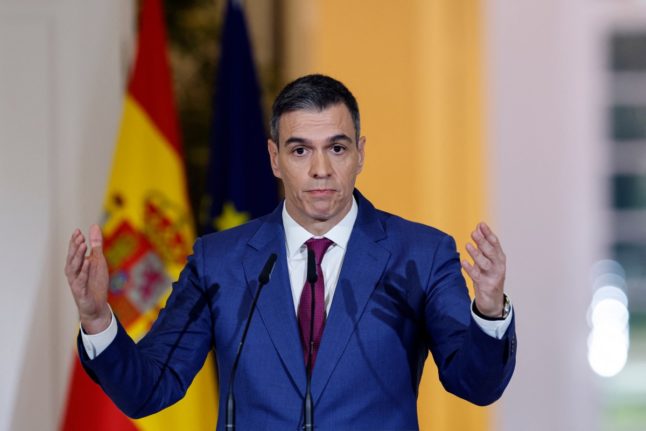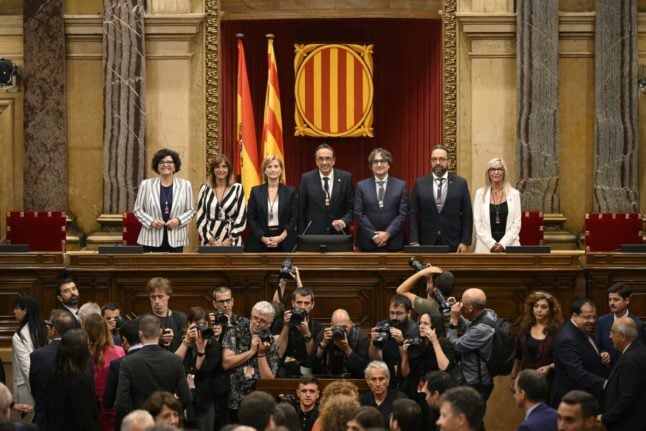Socialist Prime Minister Pedro Sánchez, who was reappointed to another term in November, said the measures aim to “improve people’s lives” at a time of uncertainty caused by Russia’s invasion of Ukraine and the Israel-Hamas conflict.
Among the measures which will be extended is the elimination or reduction of the value-added tax on certain basic food items such as fruits and vegetables, pasta and cooking oils during the first half of 2024, he said.
The government will also extend free commuter rail travel until the end of next year but will start phasing out a reduction in the VAT on electricity and gas bills during the first half of 2024 since energy prices have fallen, he added.
READ ALSO: Spain’s transport discounts to be extended into 2024
Sánchez’s government first put in place a series of measures to help households cope with soaring prices in 2022 after Russia’s invasion of Ukraine that year sent consumer prices soaring.
Spanish inflation hit a record 10.8 percent in July 2022, its highest level since 1985, but has since eased. It stood at 3.2 percent in November although the cost of food continues to rise at a much faster pace.
The measures, which will cost state coffers around €2.5 billion ($2.8 billion) in 2024, will not deter Spain from reducing its debt and public deficit, Sánchez said.
To help pay for them, the government will extend a controversial windfall tax introduced in 2023 on banks and energy companies by an extra year. The tax, which is set to raise about €3 billion this year, will now also be payable in both 2024 and 2025.
The Spanish government has pledged to bring the budget deficit to the equivalent to 3.0 percent of gross domestic product in 2024 — within EU limits — from 3.9 percent that it expects this year.



 Please whitelist us to continue reading.
Please whitelist us to continue reading.
Member comments